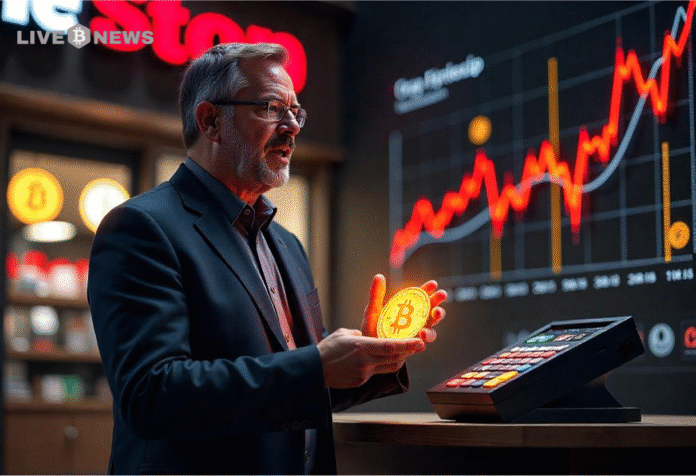- GameStop looks at crypto payments to trade cards due to the increase of hardware prices.
- The bitcoin buying is an inflation hedge and not a complete crypto pivot.
- The company is experimenting with every cryptocurrency, keeping out of the regulatory limbo.
The CEO of GameStop, Ryan Cohen, discloses that his company to taking a radical turn in accepting cryptocurrency as the means of trading card sales, emphasizing the strategic protection against inflation through Bitcoin. The move is an indication of a new direction that aims at diversified use of crypto, other than just investment.
GameStop has indicated that it is seriously parting with the old hardware-sale-driven business model and placing all bets on trading cards and collectibles due to an increase in prices. Cohen stated on CNBC that using crypto payments is a real opportunity, as they want to discuss the real demand among consumers to pay with digital currencies to buy collectibles.
Buying trade cards with cryptocurrencies is a possibility. Cohen said, “We will find out how much that is demanded”. He highlighted the utility of crypto as a hedge against inflation and believes that there is a possibility of using it in everyday purchases instead of being used as an asset only.
Exploring All Crypto Options Amid Regulatory Challenges
Even though GameStop has already tried an NFT marketplace and a crypto wallet, such activity was stopped due to uncertainty about regulatory issues. Still, Cohen clarified that the organization is willing to consider all cryptocurrencies without making a particular commitment to a specific token, which emphasizes an approach of flexibility and caution.
This transparency is indicative of GameStop looking to establish its leadership in the adoption of cryptos in niche retail markets, especially collectibles, that have been experiencing a strong increase in profitability and attractiveness to consumers.
Bitcoin Buy: An Inflation Hedge, Not a Crypto Long-Term
Source – X
In May, GameStop shocked markets by buying around 4,710 Bitcoin, a half-billion-dollar bet the company described as an insurance policy against inflation and dollar printing around the world, according to Cohen. The GameStop strategy is not as dramatic as that of the firms heavily investing in Bitcoin.
Cohen painted a different picture of the company’s Bitcoin acquisition than that of MicroStrategy, highlighting its cautious capital use and strong financial position with over $9 billion in cash and marketable assets. It’s important “to look for prospects where the negative side is minimal but the upside is noteworthy,” according to him.
The bitcoin strategy adopted by GameStop does not indicate that the company would transform into a crypto-native business intended to operate in the new digital economy, but rather a defensive financial position under precarious economic conditions.
Market Response and Future Outlook
Despite the announcements, GameStop’s stock price has remained volatile. Shares slightly declined after the Bitcoin purchase, but the firm has disclosed further capital increases that could continue to spur its crypto and trading card projects, as the shares are down after soaring in February when crypto investment discussions emerged.
The future seems digital with the hybrid nature of blockchain technology and the use of cryptocurrency payments, which can be seen in the plans of Cohen.





